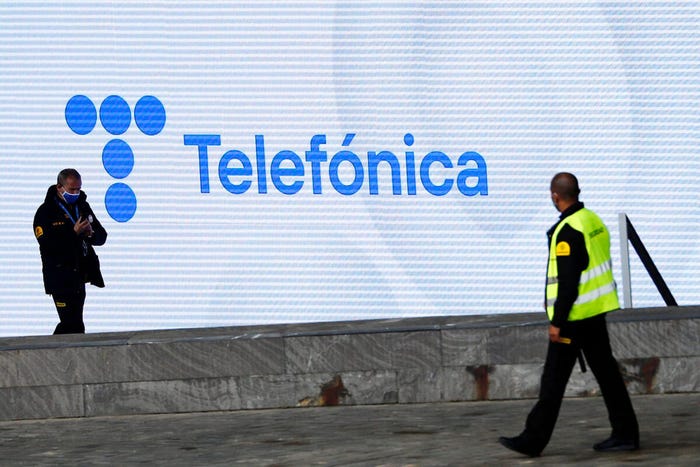Keep an open mind on sector consolidation, counsels Telefónica
Telefónica Group COO Vilá says Europe needs a flexible approach to telecoms consolidation because it remains a highly fragmented market.

The latest round of quarterly results are certainly providing insights into how telecoms operators are tackling the impact of rising inflation, higher energy costs and interest rate hikes, all of which are having profound consequences on how businesses are being managed both now and for the future.
During Friday's earnings call, for instance, Telefónica Group COO Angel Vilá spent some time being grilled on how the Spain-based group plans to tackle energy prices. He explained that the operator has been negotiating power purchase agreements (PPA) for Spain that are "gradually coming into effect" at prices of around €60.50 (US$59.67) per megawatt hour, which he noted is lower than previously seen this year. Around 80% of energy consumption is now hedged for 2023, he said.
At the same time, a long-running and particularly fractious issue for the European telecoms industry is still rumbling in the background. And that is of course consolidation, or the lack thereof. Hopes that the European Commission might soften its stance on in-market consolidation were dealt a major blow in recent weeks when Juliane Kokott, advocate general at the EU Court of Justice, backed the 2016 ruling that blocked the proposed merger of Telefónica's O2 UK and CK Hutchison's Three UK.
Figure 1:  Telefónica Group COO Vilá says Europe needs a flexible approach to telecoms consolidation because it remains a highly fragmented market.
Telefónica Group COO Vilá says Europe needs a flexible approach to telecoms consolidation because it remains a highly fragmented market.
(Source: REUTERS/Alamy Stock Photo)
In her much-anticipated opinion on the matter, Kokott proposed that the case be referred back to the General Court so that it can provide a "fresh ruling on the dispute." The same court ruled in 2020 that the Commission had failed to prove the proposed O2/Three deal would lead to higher prices for consumers or make for a less level playing field.
It was somewhat inevitable that Vilá would face questions about consolidation given Telefónica's strong support for M&A that could reduce the number of in-market players from four to three. Indeed, at the Group's AGM this year the COO described the proposed merger of MásMóvil with Orange Spain as "very positive" for the "sustainability of this sector" and noted that any consolidation in a "fragmented market" such as Spain is welcome.
His stance has not changed in the intervening months. When asked about his view on Kokott's opinion, and its potential consequences for the ongoing merger process in Spain, Vilá said he continues to believe that Europe "needs a more flexible approach regarding market consolidation because it's a very fragmented market."
He also noted that the opinion of the advocate general "does not prejudge the final judgment of the European Court of Justice, because there are many factors to be taken into account for these types of consolidation."
In terms of the proposed MásMóvil-Orange combination, Vilá said regulators "must analyze the transaction, potentially propose remedies, but the approach should consider the landscape of the sector."
No change on Hispam stance
Meanwhile, it seems that the group's strategy for its Hispanoamérica division remains unchanged, as confirmed by Laura Abasolo, group chief financial & control officer and head of Telefónica Hispanoamérica. "Hispam is non-core," she said, referring to the 2019 restructuring plan that placed a focus on the markets of Spain, Brazil, the UK and Germany. "However, this does not mean Hispam is for sale," she added.
Telefónica has already exited five Hispam markets – Costa Rica, El Salvador, Guatemala, Nicaragua, and Panama – but retains a presence in Argentina, Chile, Colombia, Ecuador, Mexico, Peru, Uruguay, and Venezuela. "We are delivering a lot of efficiencies" from a much less capital-intensive investment model, she indicated.
Want to know more? Sign up to get our dedicated newsletters direct to your inbox.
Telefónica has been focusing on fiber co-investment models in Europe and Hispam, although in the latter region it has been more prepared to allow investors to take majority stakes. For example, it has set up independent fiber infrastructure companies in partnership with KKR in Colombia (ON*NET Fibra Colombia) and Chile (ON*NET Fibra Chile). In both markets, the private equity firm holds a 60% stake while Telefónica's local businesses have each retained a 40% stake.
In Brazil, Caisse de dépôt et placement du Québec (CDPQ) owns 50% of FiBrasil while Telefónica Brasil and Telefónica Infra each own 25%. Telefónica Hispanoamérica still owns 100% of PangeaCo in Peru.
Staying on track
In terms of its overall Q3 performance, Telefónica certainly appeared fairly bullish despite all the macroeconomic headwinds and said it remains on track to achieve its recently upgraded guidance for the full year.
Group revenue in the quarter increased 11.2% to €10.34 billion ($10.12 billion), driven by double-digit growth in Brazil and Hispam. The group particularly noted that it achieved net income of €1.48 billion ($1.46 billion) in the first nine months of the current financial year.
Also worth noting is that Telefónica Tech, the new division created in 2019 along with Telefónica Infra, has maintained strong revenue growth in 2022. In the first nine months, revenue increased 70.6% to €1.02 billion ($1 billion).
Related posts:
— Anne Morris, contributing editor, special to Light Reading
Read more about:
EuropeAbout the Author(s)
You May Also Like



.jpg?width=300&auto=webp&quality=80&disable=upscale)








